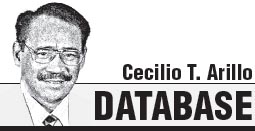
The timeless FI is in Chapter 4 of the book Imelda I wrote in 2012 for Amazon, one of the world’s largest publishers, where Mrs. Marcos explained the seven pillars in brisk details, thus:
First. Identity and unity. It is the knowledge of origin. “We develop according to the mode of our beginning. We came from the marriage of strength and beauty. You may have come from another myth. But both of us have roots implanted in the same Mother Earth for life. Therefore, you and I grow from what is good, true and beautiful. You and I are united in nature.”
Second. Nationalism. It is the nurturing of life: the human and the natural. “In the act of developing the human and the natural resources,” she said, “you evolve a loyalty and a devotion to a nation. The land and its people become sacred to you, to a degree that your honor and your very life could be offered in its favor. Above all, remember that you are the center [Man above all].”
Third. Internationalism. It proceeds from the second, and is in accordance with the natural law, consonant with the essence of your relationship with everything and everyone. Culture and creed, shade of skin and mold of face, politics and dialects, these are all varieties of a whole: the totality of one world embodied in thought, speech, action, customary beliefs, social forms and material traits, as diverse as nature herself.
“Born to this realization, you are a citizen of the world: free to travel to all nations; free to be friends; and free to reach, to receive, to relate and to respect,” Mrs. Marcos said.
Fourth. Self-reliance. It is confidence in one’s self. Secure in one’s potentials and capabilities. To have faith, without any reservations, in designing your life is the best that you can imagine it to be.
“Technology and logistics are merely aids. They can never become the strong and the beautiful in your world. Only you have the power to carry creation’s glory. This is sariling sikap [self-reliance],” she added.
Fifth. Freedom of Belief. It is the reverence of the mind. To respect what the mind believes in is to respect oneself.
Mrs. Marcos said, “belief is to repose confidence and trust. It is important to everyone. And to everyone, it may be different from yours, but that is not for you to pass judgment on. Only the Great Mind knows this. It is enough that we respect it in the other as the other respects it in us,”
Sixth. Social justice. This is the practice of virtue toward others. Not only do we give to one another what is due, but also we give it in order to make whole. This is a tremendous task.
She explained that: “As you move on to the level of perfection, so you must move others toward the same path. This is the mission of everyone in the hierarchy of orders. Those who hold the elements for growth and development, by the very nature of their position, must seek out those without these elements. And they, who received, are indebted to themselves to become the wholeness of nature’s ultimate perfection.
“Simply stated, it is to make available to the people what belonged to them. You do not assert the rights of the less privileged to have food and shelter. Those rights are theirs by the very nature of their being human. You do not starve the children and refuse them an education. You give and, in giving, pray that the pain, the rejection, the hatred of poverty and disability may be removed from their lives.”
Seventh. Democracy. Stressing that it is not a symbol, Mrs. Marcos said democracy is fundamentally a process. “It is a means of conduct, rules of behavior and a system of governance essential in order to have discipline, harmony and progress.
“So it is with nature, and so it is with culture. We begin with the union of the man and woman, and then, their family. The family grows to become the tribe, the village, the country and, finally, the family of all the nations of the world. All of these need order, harmony and discipline. It is a natural need.
“We speak of this as democracy because it is the closest word to express what is meant by a people-centered order of things. This means that the largest numbers of people are the beneficiaries of our natural resources. And the largest numbers are the smallest units, which, in our culture, are the barangay, the village-tribe and the family tree.
“Thus, the experience of living is shared in rightful measure by all, and is the responsibility of all.”
Mrs. Marcos recalled that, as then- minister of Human Settlements and governor of Metropolitan Manila, “Beyond the delivery of basic services, such as power, water, food, clothing, shelter, medical services, education, sports, recreation, livelihood, peace and security, democracy was institutionalized and made participatory from the village level, giving honor and dignity to the individual as a self-reliant and self-sufficient identity, capable of greatness according to the mastery of their natural skills. Every person mothered his or her own greatness, proud to be a Filipino.”
To reach the writer, e-mail cecilio.arillo@gmail.com.



























